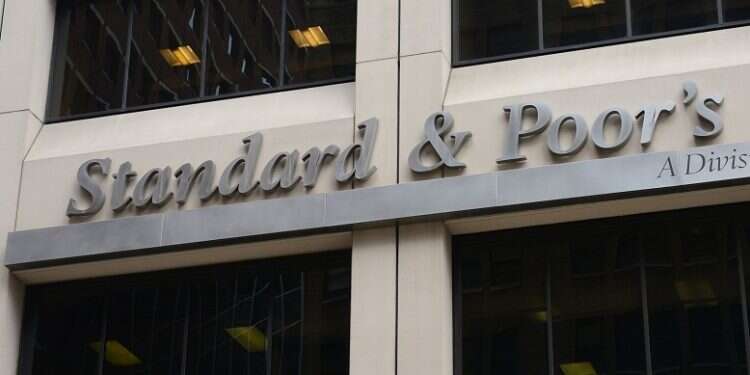International financial services and credit rating agency Standard & Poor's reaffirmed Israel's global credit ratings and economic outlook over the weekend, giving it an AA-score with a stable outlook.
S&P first upgraded Israel's rating to its current one – the highest rating awarded to the Jewish state to date – in August 2018, and reaffirmed it in February.
Follow Israel Hayom on Facebook and Twitter
In its report, S&P noted it was not "overly concerned" by Israel's substantial fiscal deficit of 53 million shekels (roughly $15 million) – 3.8% of the gross domestic product, despite its exceeding the government's deficit goal of NIS 40 million ($11 million), or 2.9% of the GDP.
This is the second consecutive year in which the ratio of debt to GDP has increased, but according to the agency, there is a consensus among Israeli politicians of the need to maintain a responsible fiscal policy, as demonstrated by the Finance Ministry's plans to impose a NIS 1.15 billion ($329 million) lateral budget cut on all government ministries between 2019 and 2021.
In Friday's research note, S&P stated Israel's economy is showing continued strong growth, which the firm expects to weather the current political instability. The report further said that the strengthening shekel –bolstered further by Bank of Israel Governor Amir Yaron's recent decision to maintain the key interest rate at 0.25% – was unlikely to harm Israeli exports.
S&P further cited as reasons for its decision the fact that the Israeli economy has grown for 15 consecutive years, the low unemployment rate (3.6%), and the fact that Israel's high tech industry is enjoying peak investment.
The agency did, however, warn that the prolonged political turmoil caused by having two general elections within six months of each other, was preventing the government from dealing with fundamental issues, such as lagging investment in infrastructure, excessive bureaucracy, and the challenge of integrating the ultra-Orthodox and Arabs sectors into the workforce.
Other potential threats to Israel's international credit score are the security threats from the Gaza Strip, Syria, and Iran.
Still, the agency lauded Israel's economy as "diversified, competitive, and resilient," saying it is expected to grow annually by 3% on average until 2022.
"Growth will stem from private consumption on the back of a strong labor market, continued corporate investment activity" and Israel's strong services export, S&P wrote.
The fact that the Leviathan offshore gas field is expected to become fully operational in 2020 will boost the economy further, the agency said.




